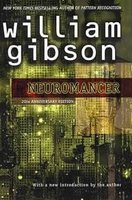Who is Jeff Gralnick? Why is he important?

Jeff Gralnick is a 47-year broadcast veteran. More importantly (and pertinent to this blog) is his current role as special consultant to NBC News in regards to internet and new technological matters. What makes him so knowledgeable about these areas though?
During his career in the television news broadcast industry some of his more significant assignments include special events producer and field reporter in Vietnam for CBS News.
Upon researching this figure in the television broadcast medium, I came upon his blog entitled, The Peacock Blog for msnbc.com. It follows the journey of the shuttle Discovery... interesting. I say this because, unless I am wrong, it appears that this blog is written from the standpoint of Earth. He gives a different perspective of this event. Not only is it communicated in a more informal news outlet, but it is a more intriguing way to present the information.
Why a blog as opposed to an article or a t.v. broadcast? Do you think that more people were reached through the newer outlet as opposed to a more traditional method?



